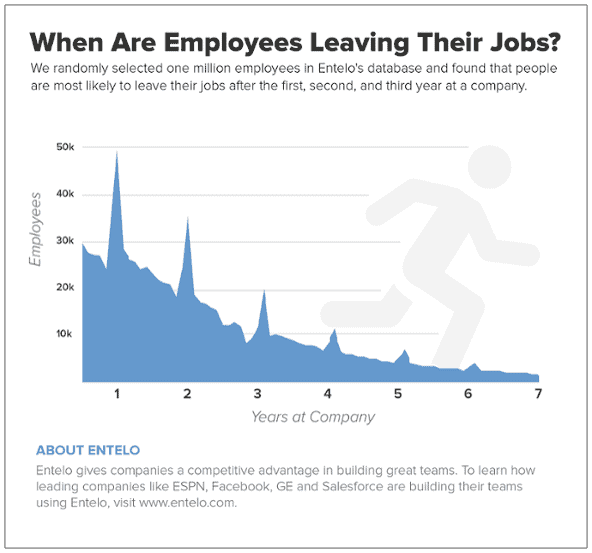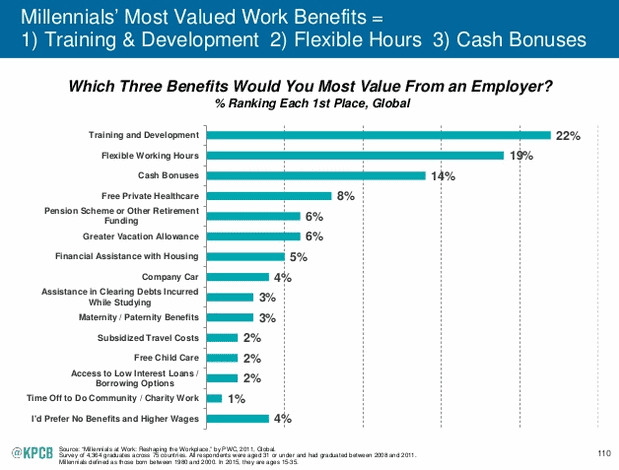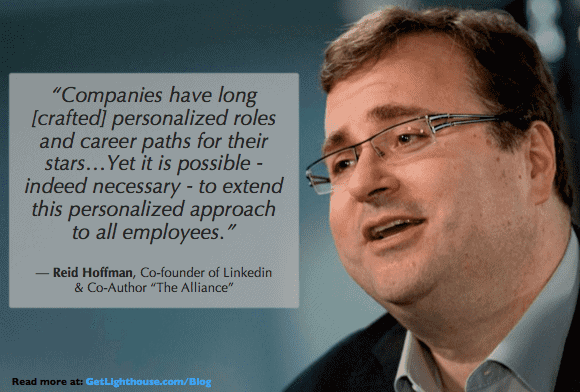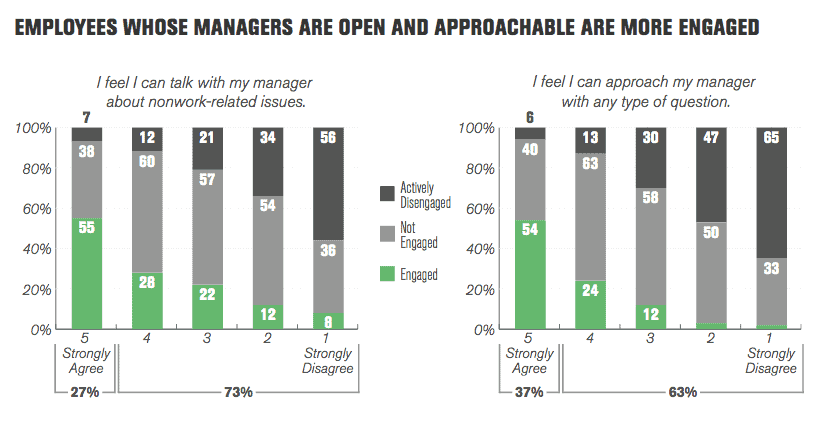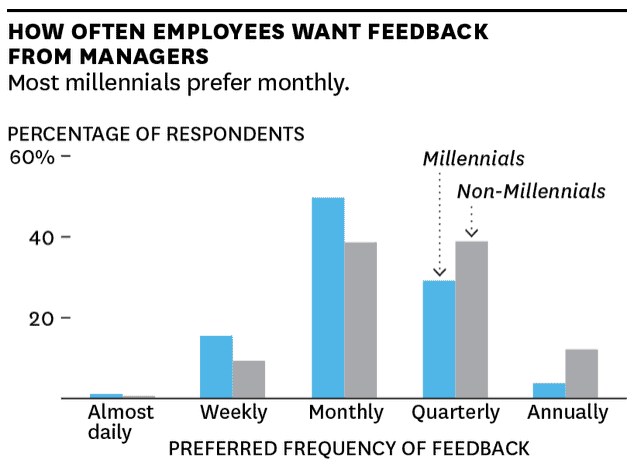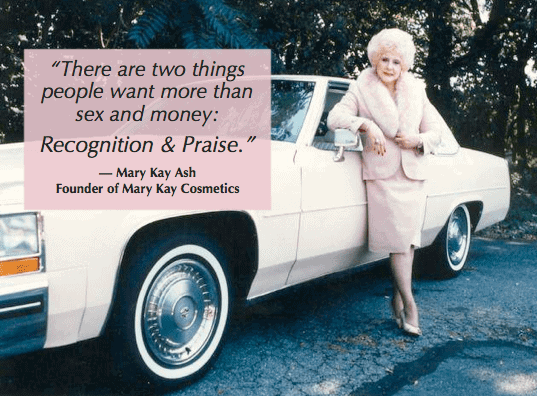New Year's Resolutions are overrated. For a lot of reasons that research has validated, and surveys support, they tend to fail to deliver the results we hope for.
Are we doomed to never change then? No.
Instead, focus on one small change you can make today, and watch as that impact reverberates through the rest of your year. You don't need it to be January to make a change, and there's no time like the present.
Here at Lighthouse, we want to help you be the best manager you can be. No matter if you're brand new to management, struggling with a team that feels lost, or a wily veteran confident in your skills, there's always room for improvement. Below our 8 things you can do now to make you a better leader in 2016.
How to Be a Better Leader in 2016
No one is born a great leader. It is a learned skill.
With the right growth mindset, you can learn how to be a better leader than you are today. Pick one of these concept below to try and you'll see a happier, more motivated team this year.
1) Start one on ones
There's no better investment of your time as a manager than having regular, consistent one on ones with your team. Just ask Andy Grove, founder and former CEO of Intel:
There's so much that contributes to working effectively with others and keeping team members motivated and engaged that a manager's work is never done. A one on one on your calendar ensures there's always time to cover these critical issues that otherwise slip and build up to big, costly problems later.
Start Today: If you're new to one on ones, or finally ready to get started now that everyone is back from the holidays, these posts can help:
- Step by step instructions to help you start one on ones with your team.
- What to talk about in your one on ones.
- How to have great one on ones like Andy Grove.
2) Get beyond status updates in your one on ones
Maybe you've tried one on ones before and they didn't work for you. Or maybe you have them, but they don't feel useful.
If you and your team dread the thought of one on ones, it's probably because they were wasted on status updates. There are plenty of places and methods for getting project updates (email, chat/IM, IDoneThis, Basecamp, etc), but no other time to cover good topics in your one on ones. As Jason Lemkin describes it, you have to make time to ask these critical questions:
When you make your one on ones a status update, you will get blindsided by problems you didn't hear about until they were too late. Whether they're fires you have to fight, or the sudden departure of a valued team member, there's usually a simple root cause you could have fixed months ago. Don't miss out on hearing about issues when the fixes are much easier.
Start Today: If you already have one on ones, then all you need to do is re-frame the goals of your one on one. Here's a couple good ways to start:
- Choose a few of these one on one questions to ask your team.
- Take the time to ask for and contribute to an agenda for the meeting.
3) Make career discussions a regular conversation
When I speak with friends in Silicon Valley that have left their jobs, career growth is almost always at the core of their decision to make a change. Even if there are great perks, smart coworkers, and good pay, a stagnant career or lack of an opportunity for growth all to often leads to a desire for change.
And my friends are not alone. As Mary Meeker's "2015 Internet Trends Report" showed, a desire for growth is the most valued work benefit for Millennials:
All to often, career development is a box to be filled in during a performance review. Unfortunately, it is then not discussed again until the next review. Even if someone is promoted, they're set up to fail as they haven't been groomed for the new role.
In today's competitive market for talent, you must invest in everyone's growth, as Reid Hoffman, co-founder of Linkedin wrote:
Start Today: One on ones are the perfect time to talk about career goals. You can check in every few one on ones to ensure progress and stay on top of changing interests. These posts can help with those conversations:
- A few different approaches to talking about career goals
- What to do if a team member doesn't know what their goals are.
4) Recognize everyone's work anniversaries
Do you know when people are most likely to quit their jobs? This chart from Entelo tells you a key factor you need to know:
Consider how you recognize work anniversaries on your team. I guarantee your people know when they reach them.
It can either be a moment of joy or disappointment. If you honor the milestone, they're more likely to feel appreciated at a moment they are most likely to be considering a departure.
You can also look at it as an opportunity to preempt the risk. If you're checking in regularly on how they're doing, and especially if they're happy in their role leading up to their anniversary, you can make changes before they ever get their resume ready.
As Jason Lemkin writes, by the time they have an offer, it's too late.
Start Today: Get the start dates from HR for your team if you don't have them. Remember their work anniversaries so you can start recognizing them and get in front of potential retention problems. These two posts can help you get started:
- Don't have a budget to recognize people? Don't worry. Here's how to make someone's day for less than $10.
- There's a lot of ways to think about retention. This post is a deep dive on employee retention.
5) Start developing leaders as your team grows
Just because you were great at managing 5 people does not mean you will be successful at managing 10. And no one can really do a good job when they manage more than 15 people directly. The lines of communication and complexity becomes overwhelming:
As a manager, you're likely involved in the hiring process. This means you know in advance when and how much your team will grow this year. Plan ahead.
If you know your team will be growing beyond your abilities to manage them yourself, start thinking about who on your team has the right qualities to lead. Talk to them about their leadership potential and if they're interested, start grooming them before you need them.
With just a little bit of planning, you can avoid the problems of an overwhelmingly large team. Instead, you'll have leaders who have been incrementally prepared to help you right when you need help the most.
Start Today: Look at your hiring plans and anticipated team growth. If it looks like you'll need a manager or two to help you lead your team, consider who would has potential and start grooming them. These links can help:
- What to do when your team grows too big.
- Qualities to look for in potential leaders and how to develop them.
6) Build rapport with everyone on your team
Do you care about the people you manage? Does your team feel like they can trust you and come to you with any problem? If not, it turns out there's very little chance they're engaged at work according to research by Gallup:
Taking the time to build rapport with your team is a valuable exercise. When you get to know them and what's most important to them, you can manage them more effectively. They're also then more likely to come to you with problems that affect your work.
One of the best things to learn about everyone on your team is their "rhythm." As Marissa Meyer describes it:
This can be anything from a sports team they play on some weeknight, a parent who wants to be home for dinner with their children, or not missing an opportunity to support a friend or family member. Whatever it is, making a small accommodation for their "rhythm" will often pay you back in the form of harder work at many other times.
Start Today: Your one on one is the perfect time to get to know your team better and to build rapport. These posts can help:
- Develop your skill of curiosity and ask more questions to get to know your team members.
- Take the time to learn more deeply about the many ways to build rapport.
7) Give more feedback
There's a good chance your people want more feedback than you're giving them. Especially Millennials want more feedback than they're commonly receiving:
Taking a few minutes out of your day to take a look at their work and letting them know what you think of it can mean a lot to them.
It's also a great way to ensure their work is up to your standards. There are few things as frustrating for a team member as working hard on a project and then only at the end finding out a problem you had with it from early on.
A lack of feedback can also hurt your business, as Andy Grove writes in High Output Management:
"The responsibility for teaching the subordinate must be assumed by his supervisor, and not paid for by the customers of his organization, internal or external."
Start Today: As part of prep for each of your one on ones, take 5 minutes to look at some of their recent work. Give them constructive feedback and go over it with them in your one on one.
- Learn more about the importance of feedback and how to give it here.
- Try giving and asking for a 5 word review.
8) Build a habit of giving praise
The sibling of giving feedback is giving praise. People crave it just as much and often need it even more.
Research by Gallup found that regular praise had a dramatic impact:
"[Those answering "strongly agree to] "In the last seven days, I have received recognition or praise for doing good work” is responsible for a 10% to 20% difference in revenue and productivity.
Employees who report that they're not adequately recognized at work are three times more likely to say they'll quit in the next year.”
Or as Mary Kay Ash, founder of the Mary Kay Cosmetics empire, put it more simply:
Giving praise costs you nothing, but done right can have a major impact on motivating your team.
Let your unsung heroes know you appreciate them. When someone goes above and beyond, make sure they know you noticed. Let your team see great work does not go unrecognized.
You'll see more of the kind of work you praise. What do you want to see more of in 2016 from your team?
Start Today: Take a few minutes today and think about who on your team is an unsung hero and take a few minutes to send them an email, chat message, or walk over to their desk and tell them why you appreciate them. Watch them light up and then consider these links:
- Learn the secrets of motivation from these great TED Talks.
- Learn the fundamentals for giving great praise here.
What's one habit you'd encourage managers to add this year to better lead and motivate their teams?

